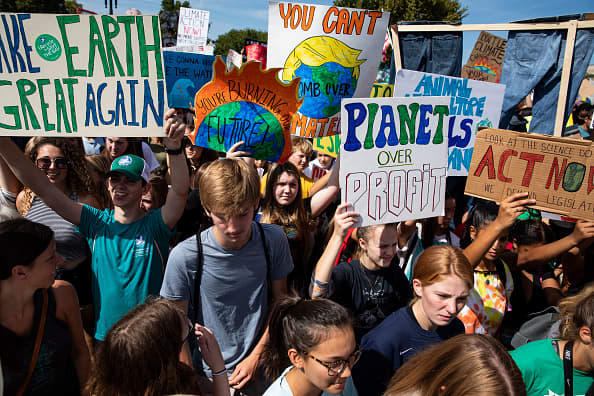
Youth march along Pennsylvania Avenue to the U.S. Capitol Building as part of the Global Climate Strike protests on Sept. 20, 2019 in Washington, D.C.
Samuel Corum | Getty Images
With the clock ticking, who will solve the problems of climate change and global warming?
Most U.S. teens believe that everyone should help.
Nearly 70% of teens said that fixing climate change and global warming is the responsibility of all of us, as individuals, according to a survey released Thursday by Junior Achievement. The survey was conducted online by Engine Insights in September and polled more than 1,000 13- to 17-year-olds about their views on the environment.
More from Invest in You:
How Washington plans to mitigate climate change’s impact on your wallet
Here’s the budget this millennial used to save $100,000 by age 25
A budget is the first step to financial wellness. Here’s how to get started
“It was a bit of a different take than I would have anticipated,” said Ed Grocholski, senior vice president of brand at Junior Achievement, adding that many conversations around climate change and global warming have focused on what was happening at a higher level, such as the government.
“There is that sense of optimism that something can be done, and people can be proactive,” he said.
Today’s teens, however, seem to be more tuned into how their individual actions and choices impact the environment — the overwhelming majority said that human activity plays a role in climate change.
Interestingly, though teens don’t see businesses as having the greatest responsibility when it comes to solving the environmental crisis, they do see business as playing a key role.
Of those surveyed, 73% said that business innovation would be required to slow or stop climate change from getting worse.
“There’s some optimism that the private sector can play a really productive role in addressing this issue,” said Grocholski, adding that things such as electric cars, green construction and growing alternative power sources have played a part. “There’s a sense of hopefulness that maybe wasn’t there a few years ago just because some of the things we’re seeing from an innovation standpoint.”




